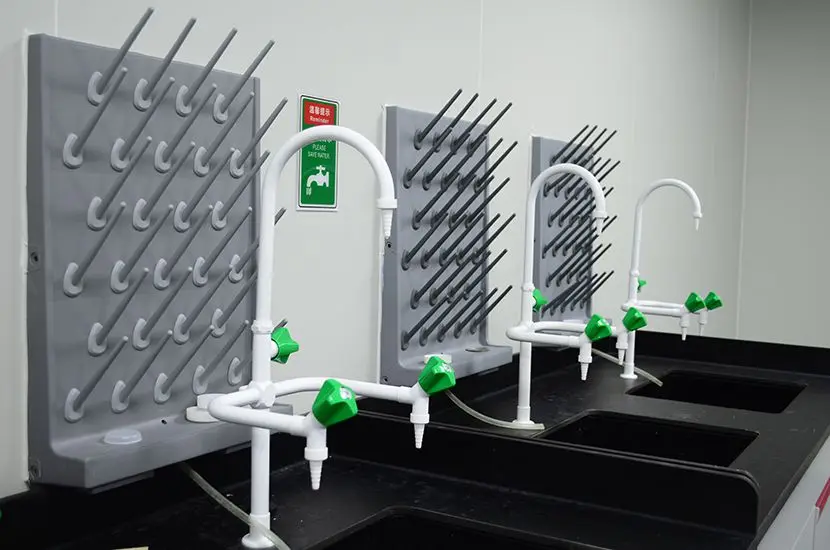
Australia FCC EMC Testing Laboratory
What is FCC Certification?
FCC certification is the United States' mandatory emc certification, primarily targeting electronic devices within the frequency range of 9KHz-3000GHz. FCC certification covers various aspects including radio and communication, particULarly addressing radio interference issues in wireless communication equipment and systems. It includes radio interference limits and measurement methods, as well as certification systems and organizational management systems.
Which Products Require FCC Certification?
1. Computers and peripherals (keyboards, monitors, power adapters, mice, fax machines, etc.);
2. Household appliances, and power tools (refrigerators, electric kettles, electronic disinfection cabinets, microwaves, vacuum cleaners, electric shavers, hair dryers, ovens, massagers, washing machines, etc.);
3. Lighting fixtures (LED lights, LED screens, stage lights, switches, electronic devices, etc.).
(If you are unsure whether your product needs FCC certification for entry into the United States, you can inquire at chen18814186731@gmail.com).
What is emc testing?
EMC consists of two parts: EMI (Electromagnetic Interference) and EMS (Electromagnetic Susceptibility). This noise does not affect other systems as intended but does not benefit the machine itself.
EMI: Electromagnetic Interference refers to the electromagnetic energy that electronic products should not produce during normal operation, exceeding the prescribed standard. Test items and corresponding standards also vary depending on the product's function, form, and application scenario.
emi testing Items:
1. Conducted Emissions (CE) Testing (FCC 450KHz-30MHz, CISPR 22 150KHz-30MHz);
2. Radiated Emissions (RE) Testing (30MHz-1GHz);
3. Harmonic Current Testing (FCC part15: 1GHz-18GHz, EN300 328: 1GHz-12.75GHz);
4. Voltage Fluctuation and Flicker Testing.
Classification Levels:
EMI is generally divided into Class A (industrial) & Class B (consumer) levels.
Radiation 3m Laboratory Testing Example:
Class A requires no more than 50dBuV from 30-230MHz;
No more than 57dBuV from 230-1000MHz;
Class B requires no more than 40dBuV from 30-230MHz;
No more than 47dBuV from 230-1000MHz.
EMS: Electromagnetic Susceptibility refers to the ability of electronic products in a certain environment to withstand electromagnetic energy interference within the specified range and operate normally. Test items and corresponding standards also vary depending on the product's function, form, and application scenario.
EMS Testing Items:
1. Electrostatic Discharge (ESD) Immunity;
2. Electrical Fast Transient Burst (EFT) Immunity;
3. Surge Immunity;
4. Radiated Susceptibility (RS);
5. Conducted Susceptibility (CS);
6. Voltage Dips and Interruptions (DIP).
Classification Levels:
EMS is classified based on the product's operational state after interference is applied, ranging from Class A to D.
For example, in electrostatic testing:
Class A: The tested device remains in normal operation after testing or during testing;
Class B: The tested device is allowed to restart after testing or during testing without human intervention and can resume normal operation;
Class C: The tested device may crash or exhibit other abnormal behaviors after testing or during testing but can be manually adjusted to restart and resume normal operation;
Class D: The device is damaged and cannot be started regardless of adjustments.
Strictness: EMI follows B > A, while EMS follows A > B > C > D.
Common FCC Certification Standards
- fcc part 15 – Computing Devices, Cordless Telephones, Satellite Receivers, TV Interface Devices, Receivers, Low Power Transmitters;
- fcc part 18 – Industrial, Scientific, and Medical Equipment, e.g., Microwave, RF Lighting Ballast (ISM);
- FCC Part 22 – Cellular Telephones;
- FCC Part 24 – Personal Communications Systems, covering licensed personal communications services;
- FCC Part 27 – Miscellaneous Wireless Communications Services;
- FCC Part 68 – All Types of Telecommunications Terminal Equipment, e.g., Telephones, modems, etc;
- FCC Part 74 – Experimental Radio, Auxiliary, Special Broadcast, and other program distributional services;
- fcc part 90 – Private Land Mobile Radio Services, includes Paging Devices and Mobile Radio Transmitters, covering land mobile radio products such as high-powered walkie-talkies;
- FCC Part 95 – Personal Radio Service, includes devices such as Citizens Band (CB) transmitters, radio-controlled (R/C) toys, and devices for utilization under the family radio service.
How Much Does FCC emc testing cost?
Our laboratory provides fcc emc testing reports for $900, with a testing time of 10 working days (our fees are 30% lower than other laboratories).
Email: chen18814186731@gmail.com"
Email:hello@jjrlab.com
Write your message here and send it to us
 Cost of U.S. FDA CFR 21 177.2600 Test Report
Cost of U.S. FDA CFR 21 177.2600 Test Report
 How much does the IP44 Compliance Test cost
How much does the IP44 Compliance Test cost
 What is LFGB Test
What is LFGB Test
 What does LFGB certified mean?
What does LFGB certified mean?
 Weee authorised representative germany
Weee authorised representative germany
 Where to Apply for 2026 Air & Sea Transport Ce
Where to Apply for 2026 Air & Sea Transport Ce
 Guide to IEC Test Reports for Lighting Exports
Guide to IEC Test Reports for Lighting Exports
 IEC/EN 62471 and IEC/EN 62778 (Photobiological Saf
IEC/EN 62471 and IEC/EN 62778 (Photobiological Saf
Leave us a message
24-hour online customer service at any time to respond, so that you worry!




